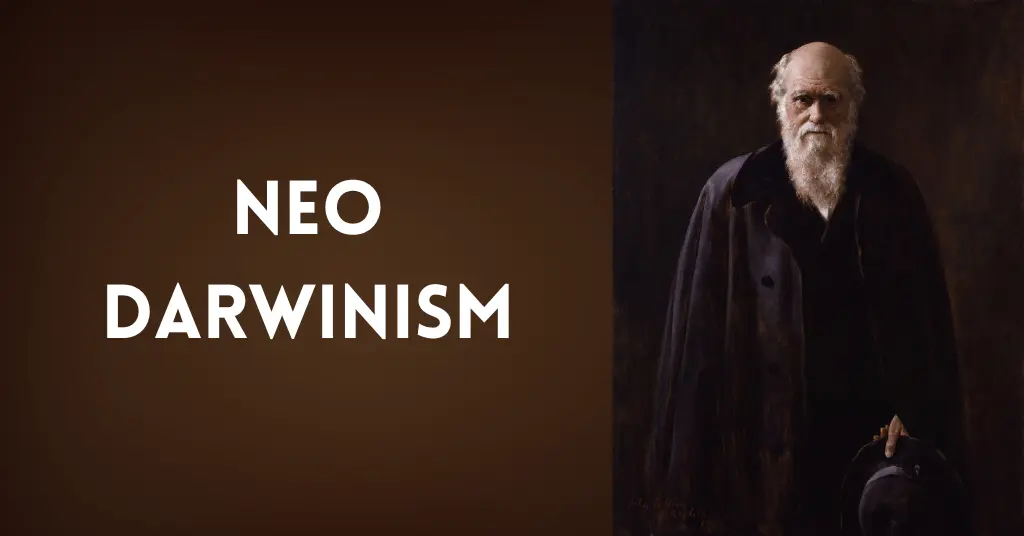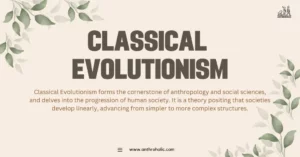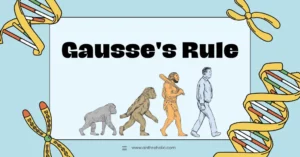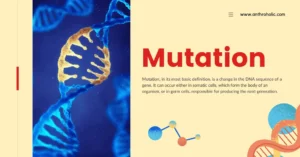AI Answer Evaluation Platform Live Now. Try Free Answer Evaluation Now
Neo Darwinism
Neo Darwinism is sometimes referred to as the Modern Theory of Origin of Species or the Modern Synthesis theory of Evolution. Neo Darwinism is also known as Modern Synthetic theory since it combines Mendel’s theory of inheritance with Darwin’s theory of Evolution by Natural Selection.

Darwinism emphasises the value of natural selection over mutation, while Neo Darwinism – often referred to as a modified form of Darwinism—focuses on changes in allele frequencies with the aid of Mendelian genetics.
By conducting in-depth mathematical analyses on the basis of mutation, natural selection, and genetic drift, three pioneers – R. A. Fisher, Sewall Wright, and J. B. S. Haldane – laid the groundwork for Neo Darwinism and ultimately came to the conclusion that natural selection is more significant than mutation in a given population. Other groundbreaking theories, such as Mendel’s law of inheritance, Wagner’s theory of isolation, and Hugo de Vries theory of mutation, according to which new species emerge as a result of abrupt mutation rather than a gradual process, were developed.
Features of Neo Darwinism:
- Genetic variation is caused through mutation, but as this process has little impact on gene frequency, it has only a very small impact on the course of evolution.
- Because of prior mutations that produced sufficient genetic variation to be responsive to natural selection in the population, mutations cannot be fully disregarded.
- Evolution is a result of environmental factors and natural selection. A population can evolve in response to environmental conditions without the need for new mutations since past mutations have already resulted in a significant number of hidden genetic variations.
- With the variation available owing to mutation, new inventive traits are generated through natural selection.
According to Neo Darwinism, a population has many genetic differences that may either assist an individual adapt to their environment or just produce new phenotypic characteristics that aid in that adaptation. Due to numerous mutations that have occurred in the past there exists genetic variability, which may result in changes to characteristics like the recombination rate and mutation rate.
Drug resistance in insects and bacteria is one of the suitable examples that supports Neo Darwinism. Even though numerous insecticides and antibiotics were used that were very effective earlier, the insects and bacteria eventually developed resistance to the insecticides and antibiotics like penicillin. They were resistant because at some point mutation took place in the population which helped in preserving the resistance genes even if at low frequency and passed them on to their progeny in subsequent generations in the population through natural selection. Insecticides and antibiotics supported in eliminating the non-resistant strains from the population while further selecting the resistant ones.
Criticism of Neo Darwinism:
Neo Darwinists essentially ignored heredity, believing that adaptations occurred primarily as a result of natural selection and other reasons.
American palaeontologist Stephen Jay Gould declared that Neo Darwinism, also known as the Modern Synthetic theory, was “officially dead” because the role of natural selection on mutation was insufficient to explain macroevolution, also known as the evolution of taxonomic groups, and additional processes were required to fully comprehend the results of the fossil record.
References
Nei, M. (2013). Mutation-driven evolution. OUP Oxford.
Ho, M. W., & Saunders, P. T. (1979). Beyond neo-Darwinism—an epigenetic approach to evolution. Journal of theoretical Biology, 78(4), 573-591.
Hancock, Z. B., Lehmberg, E. S., & Bradburd, G. S. (2021). Neo-darwinism still haunts evolutionary theory: A modern perspective on Charlesworth, Lande, and Slatkin (1982). Evolution; international journal of organic evolution, 75(6), 1244–1255. https://doi.org/10.1111/evo.14268




